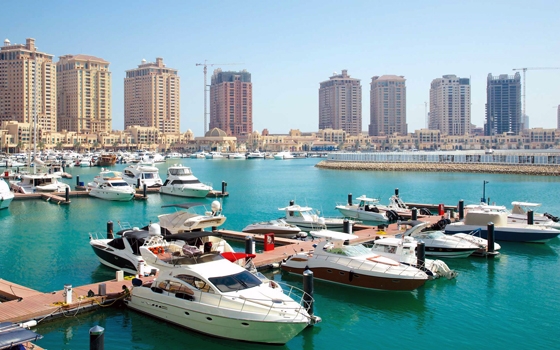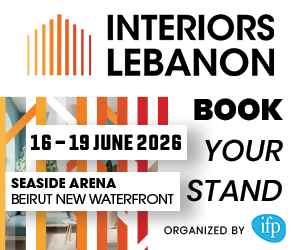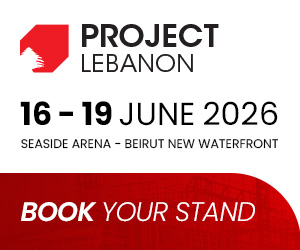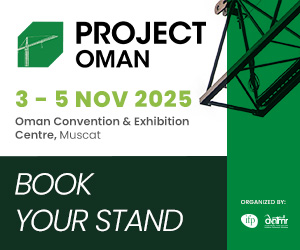In June 2015, Dubai-based real estate developer, Al Fara’a Properties announced its intention to build at Dubai Maritime City. Currently in pre-planning stage, the waterfront residential project will add to the growing list of maritime projects in the city – and the GCC – which are being carried out by private firms and governments alike to expand their geographical coastlines.
Leading the GCC’s shift towards the shore is Dubai, which is expected to be among the top seven maritime centers in the world by 2020, according to a survey by Menon Business Economics Group, which cited a statement from the Dubai Maritime City Authority (DMCA). Since Dubai’s hosting right for Expo 2020 was announced, sizeable investments have been made by government bodies and renowned developers to increase the Emirate’s coastline. These include projects such as RTA’s $544m (AED2bn) water canal project on Sheikh Zayed Road, and Nakheel’s Deira Islands development, expected to add 40km to Dubai’s coastline, including 21km of beachfront.
A few hundred kilometers away in Abu Dhabi, the UAE’s capital city is developing its marine borders for heavy industry use, primarily through the construction of ports and freezones. These include Dalma Port and Marfa Port, both of which were worked on by Parsons. The American engineering specialist was also involved with Jebel Ali Port in Dubai, and Sohar Port in Oman.
“Over the years, Parsons has worked on many prestigious regional marine projects,” a company spokesperson said.
“At Abu Dhabi’s Khalifa Port, Parsons provided detailed design of infrastructure, utilities, and quay wall. Parsons' projects outside of port facilities include a seawater supply project for oil fields in Iraq.”
Meanwhile in Kuwait, consultant, SSH is working on a contract awarded by Kuwait Oil Company, a government-held subsidiary and the world’s fourth-largest exporter of oil.
“Kuwait Oil Comapny has awarded SSH a contract to perform consultancy services for its marine facilities upgrade,” George Abi-Hanna, resident director at SSH Kuwait, tells Construction Week.
“[It is] a challenging logistical marine-based project, which includes the construction of a breakwater and harbor; demolition works; additional buildings for stores; workshops and worker amenity buildings; and, a dry dock, including carnage points and oil separators,” Abi-Hanna adds.
The project is a prestigious one, and SSH knows it will have to overcome the challenges typical of marine developments, to successfully deliver the project.
Abi-Hanna points out the shortage of skill in the marine engineering field. Changing sea conditions and controlled working hours are common hurdles to overcome on marine projects. Furthermore, he explains that operators must have specific skill-sets to apply and manage different types of material and equipment while on-site.
“It is challenging to find the right consultant who is locally experienced in this field,” SSH’s Kuwait chief says.
“As a result, our marine engineering consultants are sourced from abroad, where we benefit from their international standards and expertise.
“Due to its nature, marine projects’ administration, control, and supporting services buildings, such as the firefighting and water treatment network; stores; and workshops have different design requirements because of the operation and maintenance needs of each,” Abi-Hanna adds.
Construction and execution for a marine project takes meticulous micro-planning, Mark Phelan, operations manager for Middle East marine operations at BAM International tells Construction Week, adding “it is a different world when it comes to combating factors like water depths, waves, and work from floating and jack-up platforms”.
BAM International is currently working on the Aqaba LNG terminal in Jordan, and Al Dabbiya artificial islands development in Abu Dhabi. Drawing from his plans for similar such projects, Phelan says: “Weather effects, logistics, payments and approvals are usually our main challenges.
“[However], as we self-execute our work with our own floating equipment and in-house design, we only have to deal with external challenges,” he adds.
Approval processes, it would appear, do indeed pose significant challenges for marine contractors. Parsons’ spokesperson says obtaining approvals from relevant authorities is “one of the greatest challenges we [marine contractors] face”.
The source continues: “During the planning stage of the project, all the relevant authorities will be contacted beforehand, requesting the correct approvals and paperwork. This saves time during the construction phase of the development, and [understandably,] saving time can in some circumstances result in cost savings to the client.”
None of these hurdles, however, will restrict the GCC’s maritime growth, in large part owing to the project investments made – besides government bodies – by large international companies in the region.
Consolidated Contractors Company (CCC), for instance, is currently bidding on unnamed marine projects in Saudi Arabia and Africa, a marine works expert within the company, who wishes to remain anonymous, says.
In Dubai, Dutch contractor Van Oord has been awarded a $105m (AED385.7m) deal to deliver 23.5km of coastline and breakwaters at Deira Islands.
With big money and even bigger ambitions at stake, construction within the Gulf’s marine sector looks to have smooth waters ahead for the foreseeable future.
Construction Week
6 July











































































